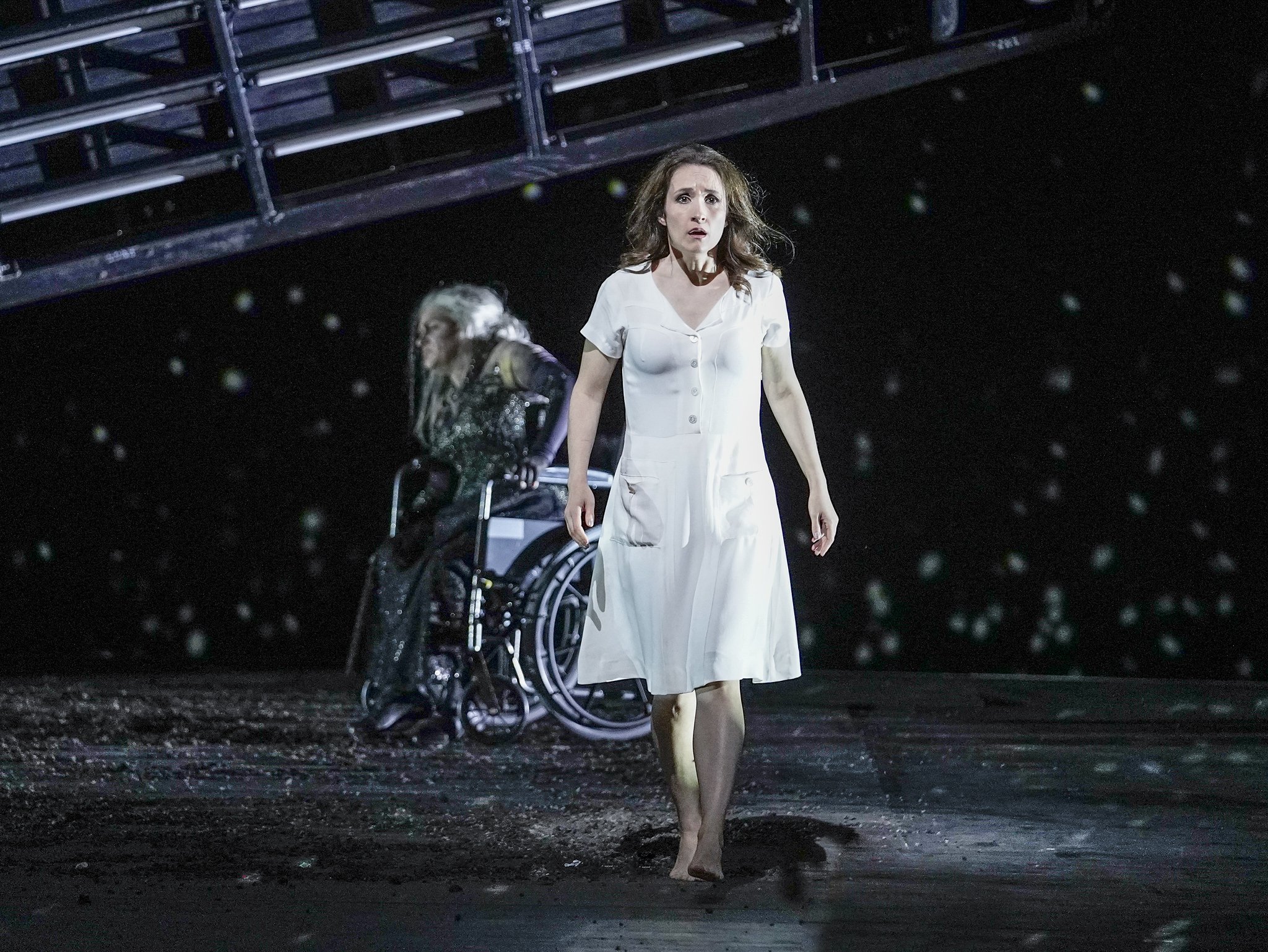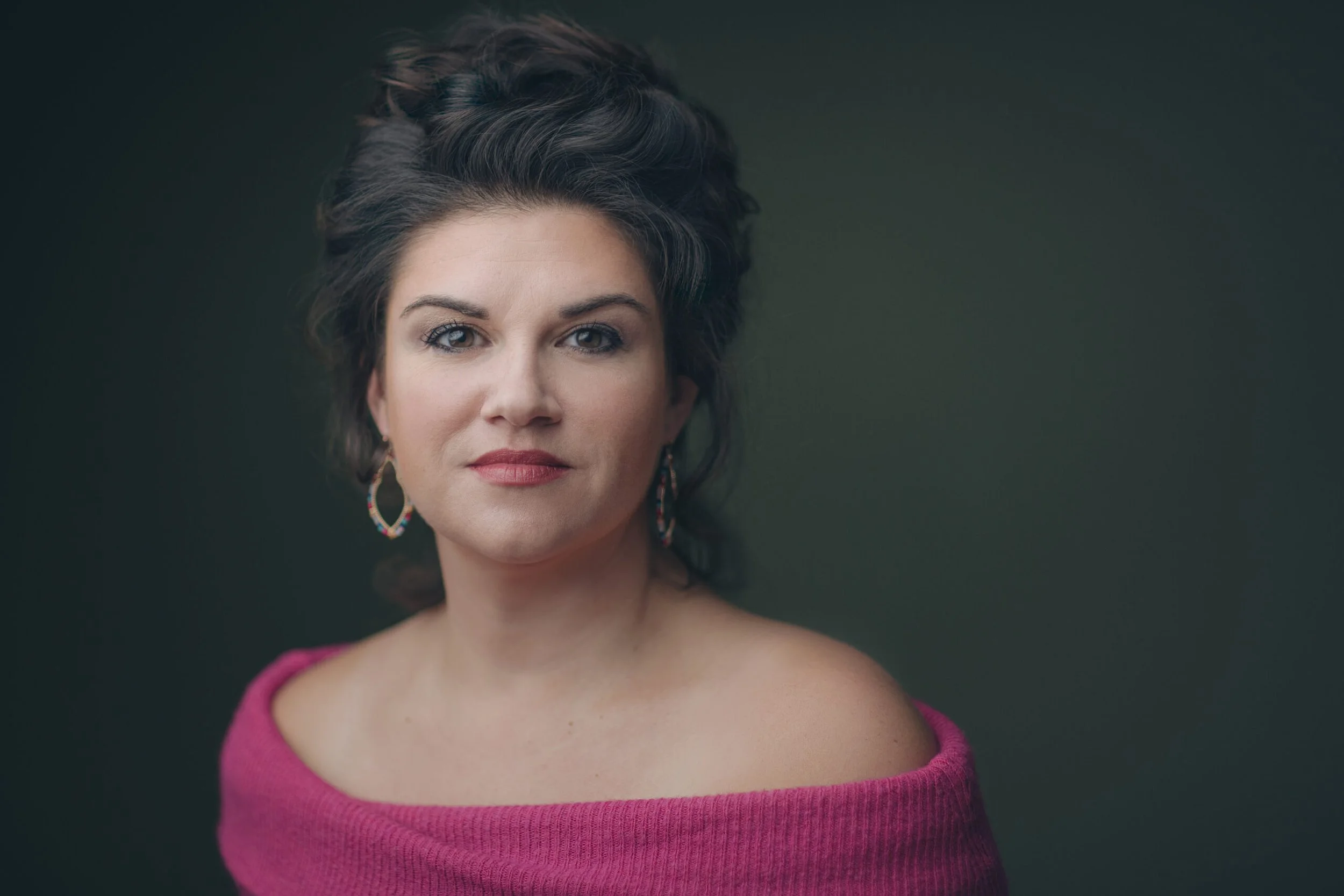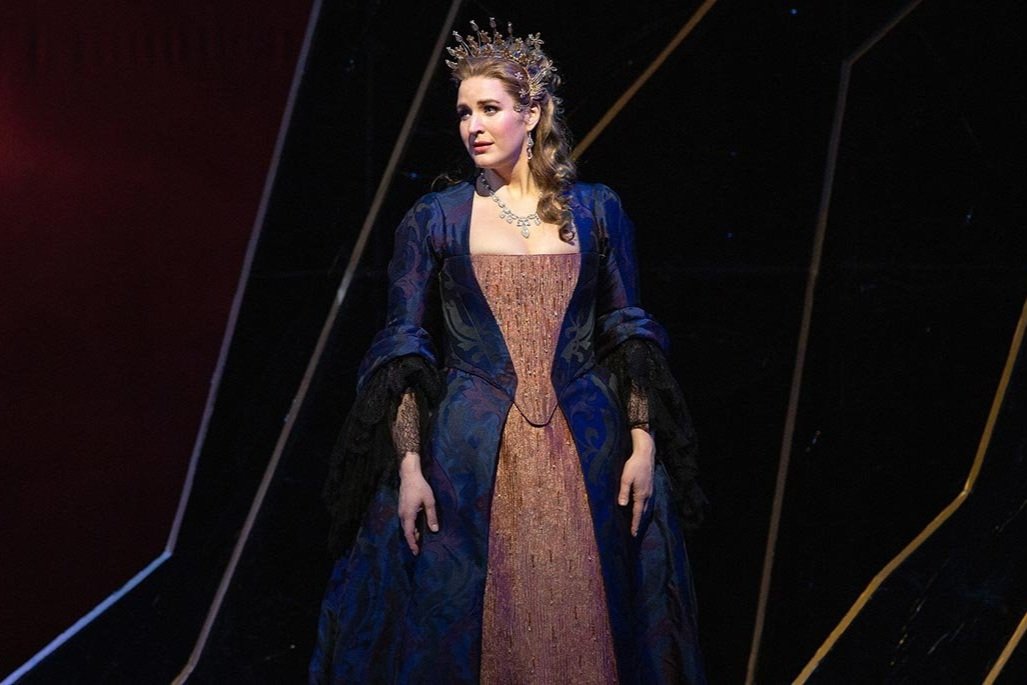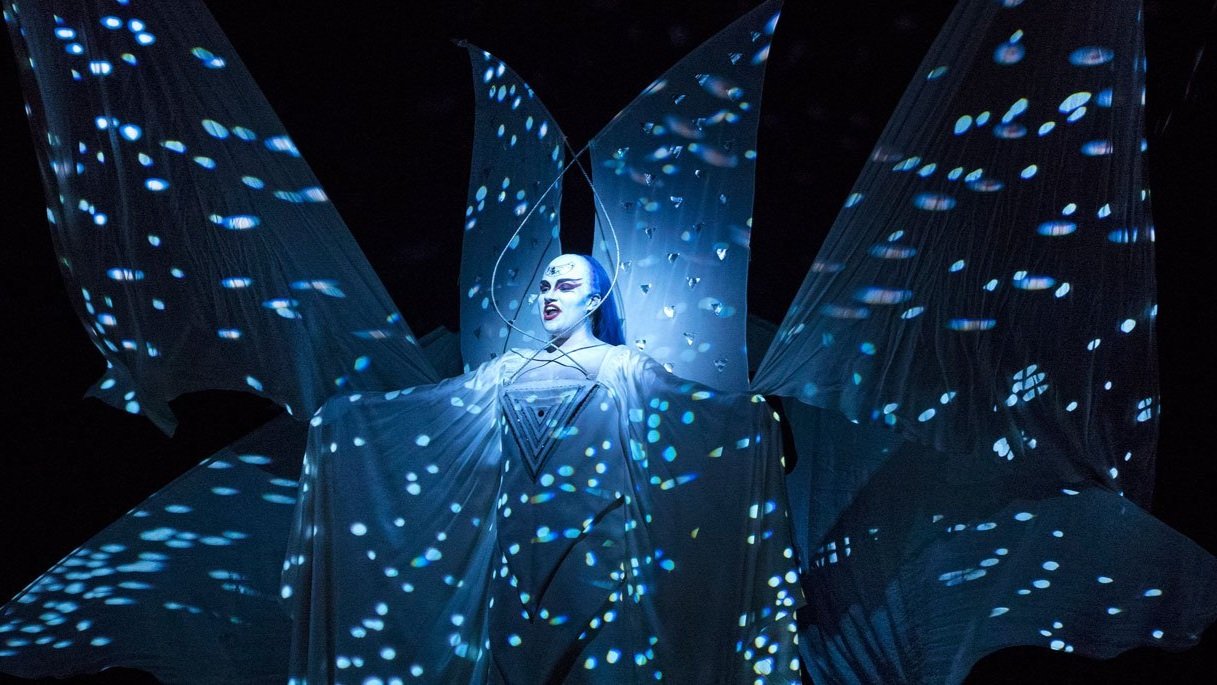Met Opera Radio Review: Die Zauberflöte
Erin Morley (foreground) and Kathryn Lewek (background) in Die Zauberflöte (Karen Almond/Met Opera)
Review for the radio transmission on June 3rd
The Met’s stupendous 2022-23 season draws to a close with Simon McBurney’s imaginative new production of Mozart’s delightful Die Zauberflöte. There’s no Mozart next season, so Mozart Month (Don Giovanni, also a new production, closed on June 2) was an excellent idea.
Nathalie Stutzmann, previously a contralto, made her Met debut in May conducting Don Giovanni. Leading two new stagings of two marvelous Mozart operas in one month is no easy task, and the music frequently felt rushed or out of sync. I could hear singers audibly out of breath in roles that they usually breeze through. Otherwise, she conducted the superb Orchestra skillfully, and as the Met has entrusted Stutzmann with these important operas, we should expect her back soon.
Erin Morley and Thomas Oliemans in Die Zauberflöte (Karen Almond/Met Opera)
Erin Morley displayed her bright, pristine soprano as Pamina. Her lament, “Ach, ich fuhl’s,” was sung with moving precision — that sounds like an oxymoron, but the clarity only made it sound sadder. During Pamina’s attempted suicide scene, Morley moderated her voice to a lovely piano to not overpower the Spirits (here portrayed as little old men and sung by Luka Zylik, Deven Agge, and Julian Knopf from the Children’s Chorus), resulting in a pleasing mix of the four voices, though Morley’s remained clearly distinct.
At first, Pamina can seem like a damsel in distress; she’s kidnapped, saved, and marries a prince. Nope. When we first met her, she had escaped (but was recaptured). She saves Tamino, not the other way ‘round, by telling him to play the magic flute for protection. She’s proactive, clever, and brave, and I could hear those traits in Morley’s interpretation.
Lawrence Brownlee was a sweet-voiced, valiant Tamino. He sounded determined and sincere, and his voice is enchanting enough to overcome the fact that Tamino gets some of Zauberflöte’s more boring (but beautiful) music. His singing in “Dies Bildnis ist bezaubernd schön” was tender and buoyant, and it was easy to believe that Tamino was in love. In his duets with Morley, his plummy tones contrasted with her steely ones, and they turned out to be a wonderful pair.
Lawrence Brownlee and Kathryn Lewek in Die Zauberflöte (Karen Almond/Met Opera)
Kathryn Lewek, whom I know as Katie, reasserted herself as the greatest Queen of the Night, one of the toughest roles in all opera. June 3rd was her 50th performance at the Met in that role (sadly, it’s also the only role). When she went into her high notes in her first aria, “O zittre nicht,” — the tessitura goes up to a mind-blowing F6 — I felt that her voice was the stratosphere; she was flying so high so flawlessly. Similarly, Katie sailed through the ridiculously high notes in “Der Hölle Rache” with her incredible agility and intensity. Listening, I cheered her. Her carefully crafted performance felt rawer and more emotional than ever, and I’m glad she and McBurney didn’t make the Queen pure evil, which is easy, but instead a wounded and flawed human. Oddly, Katie didn’t sing in this season’s holiday adaptation of Flute, but she will next year, and I can’t wait.
Thomas Oliemans made his debut as the lonely, practical birdcatcher Papageno. He sounded like tons of fun, calling out to the birds even before he started singing, and he used an impressively high speaking voice for a baritone. I would even call him the Met’s funniest Papageno since Nathan Gunn: “Leave the flute, take the cannoli!” Vocally, Oliemans has a potent, flexible instrument, and his natural way of slipping from speech to song and back again is impressive.
The Queen’s Three Ladies were Alexandria Shiner, Olivia Vote, and Tamara Mumford. Tamara’s elegant, full voice stood out, though the trio’s sounds did not blend very well. Stephen Milling was a dignified, resonant Sarastro, and Ashley Emerson sang like a nightingale as Papagena, Papageno’s lady bird.
From left: Olivia Vote, Thomas Oliemans, Alexandria Shiner, and Tamara Mumford in Die Zauberflöte (Karen Almond/Met Opera)
McBurney’s daring production took a decade from premiere to Met opening. It may be more thoughtful, but I’ll take Julie Taymor’s whimsical, charming gift box of a staging over this in a heartbeat. McBurney’s production is innovative, bare but full of cool special effects, fun — but not kid-friendly. As I hear, Monostatos (the tenor Brenton Ryan) makes a lewd gesture and some of the Queen’s ladies wear suits… that give the illusion of being unclothed. The thought makes me want to scarf ice cream on the couch for a week. It’s a fairy tale!
But I kvetch.
The voices are gorgeous and the staging is certainly creative — there’s a foley artist and somebody drawing backdrops live, Sarastro reconciles with the Queen, and professional musicians playing the flute and glockenspiel (Seth Morris and Bryan Wagorn, respectively). The characters have more depth too, especially the Queen, though the crone look is something.
Still, it’s hard for me to stay positive about birthday-suit suits. Out of curiosity, I was hoping to go and experience the superb singing live, but I’m still young, so my parents have vetoed it. Modern is one thing; I can handle modern (to a point). Risqué — a refined way to put it — is another. Even for Mozart, an incredibly immature man fond of potty jokes and bawdy humor, this may have gone too far.







